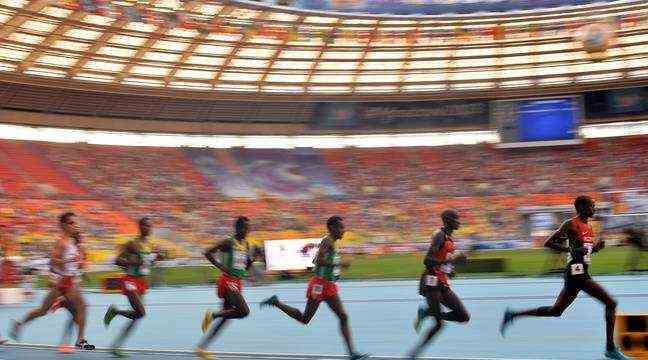Twenty athletes, including ten Nigerians, have been banned from participating in the Tokyo Olympics for failing to meet out-of-competition doping control standards, the Athletics Integrity Unit (AIU) announced on Thursday. These twenty athletes are part of the countries classified by the IAU in “category A”, known as “high risk”, whose representatives must undergo three tests in the ten months preceding a major championship.
Nigeria is the most impacted country, ten of its 23 athletics qualifiers having failed. Nigerian sprinter Blessing Okagbare, one of the contenders for the Olympic 100m title, is not on this list, according to a source familiar with the matter.
Very critical Okagbare
In a statement, the Nigerian Athletics Federation immediately recognized “failures”. She said she took “responsibility for any failure” leading to this disqualification, adding that all her athletes, especially those residing in the United States, have received the necessary tests. “However, a few athletes in the US college system have been tested, but these tests have been found not to meet WADA’s collection and testing standards. “
If the Nigerian federation, in the grip of power struggles for several years, assured that the country’s performance would not be affected by this news, the Nigerian star sprinter Blessing Okagbare, who will take part in the 100 and 200m events in Tokyo, was very critical: “The sport system in Nigeria is totally flawed and we, the athletes, are still collateral victims”
I have said it before and I will say it again. If you do not know the sport, not passionate about it / Us (the athletes), then you have no business there as an administrator. The sport system in Nigeria is so flaw and we athletes, are always at the receiving end of the damages ..
– Blessing Okagbare MFR (@ mountain214) July 29, 2021
The two suspected Kenyan athletes have been replaced
The other affected countries are Kenya, Belarus, Ethiopia, Morocco and Ukraine. The two Kenyan athletes excluded, on the other hand, were able to be replaced before the officialization of the participants in the Olympic Games, which thus made it possible to requalify the world champion of the 1,500 m Timothy Cheruiyot, only fourth in the selections of his country, to the detriment of Kamar Etyang. , second in the race.
If the countries at risk have made “significant improvements” in the fight against doping, “there is still a long way to go,” said David Howman, the head of the IAU quoted in the press release.

